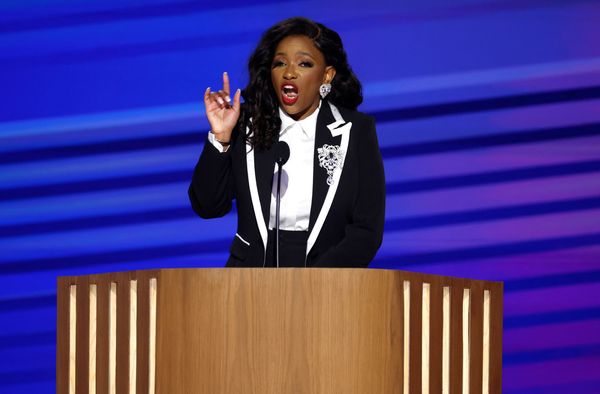Welcome to this week's Media Watch!
After a week away, I came back on the week Nicola Sturgeon's new memoir Frankly was due to come out.
The book was due to be released on Thursday, but in a bizarre turn of events, piles of copies appeared on sale in Waterstones on Monday, days before a supposed embargo on the content was due to be lifted. Cue a parade of journalists dropping everything they are doing and clambering into stores at pace.
I was interested in what the former first minister might have had to say about her many encounters with the Scottish press and just over halfway through the book, I came across a particularly spicy take on the Daily Telegraph's coverage of what became known as "Frenchgate".
Back in April 2015, an article in the paper reported the contents of a leaked Government memo which claimed that at a private meeting, Sturgeon had told the French ambassador to the UK, Sylvie Bermann, that she would rather see David Cameron win the election than Ed Miliband.
The memo had been written by a senior British civil servant – who Sturgeon explains was not in the room – a week later, following a conversation with the French consul-general, Pierre-Alain Coffinier.
Sturgeon recounts coming across rumours about the article prior to its release on social media.
She says in Frankly: "I couldn't begin to imagine what the story might be. Oddly, the Telegraph had made no approach for reaction or comment.

"Before publishing such a potentially damaging, and, as it turned out, wholly inaccurate story about me, the Telegraph should have offered a right of reply. It didn't, no doubt because they feared that my flat denial would have destroyed by story.
"It was atrociously bad journalism."
Former Scottish secretary Alistair Carmichael eventually admitted being behind the leak which he said was an "error of judgement".
The Independent Press Standards Organisation upheld a complaint against the Telegraph, with its complaints committee saying that while the newspaper was entitled to report on the memorandum, it had published its contents as facts without taking additional steps prior to publication - such as contacting the parties involved for their comment - to verify their accuracy.
Sturgeon states in her book that the memo "expressed scepticism that I would ever have voiced such a view and contained a caveat that there might have been an error in translation".
She goes on to say there had been an "obvious" mistranslation.
"I had the highest regard for Pierre-Alain and did not believe he had intended to misrepresent me. I had no reason to think that the Foreign Office official who wrote the memo did either," Sturgeon said.
"I recalled exactly what I'd said to the ambassador. I had told her that Cameron might well win the election, as Miliband was seen by many as weak.
"It was a prediction of what I thought could happen, not an expression of what I wanted to happen."
Sturgeon reflects that while she knew the story was "rubbish", she feared what it might do to her and her party's reputation as she admits she didn't know if she'd be able to convince the wider world that it was false.
She said she was "immensely grateful" to the French Embassy when it issued a strong rebuttal, and goes on to recount how the story ended up working in the party's favour.
"For many of our core supporters, it was evidence the 'establishment' was trying to stitch us up," she writes.
She goes on: "A story that could have been fatal to our campaign ended up giving it a boost.
"It all added to the sense that I had the Midas touch."
An exclusive interview with Sturgeon will be broadcast on Monday evening at 7pm on ITV and STV before the book becomes officially available to buy on Thursday.







